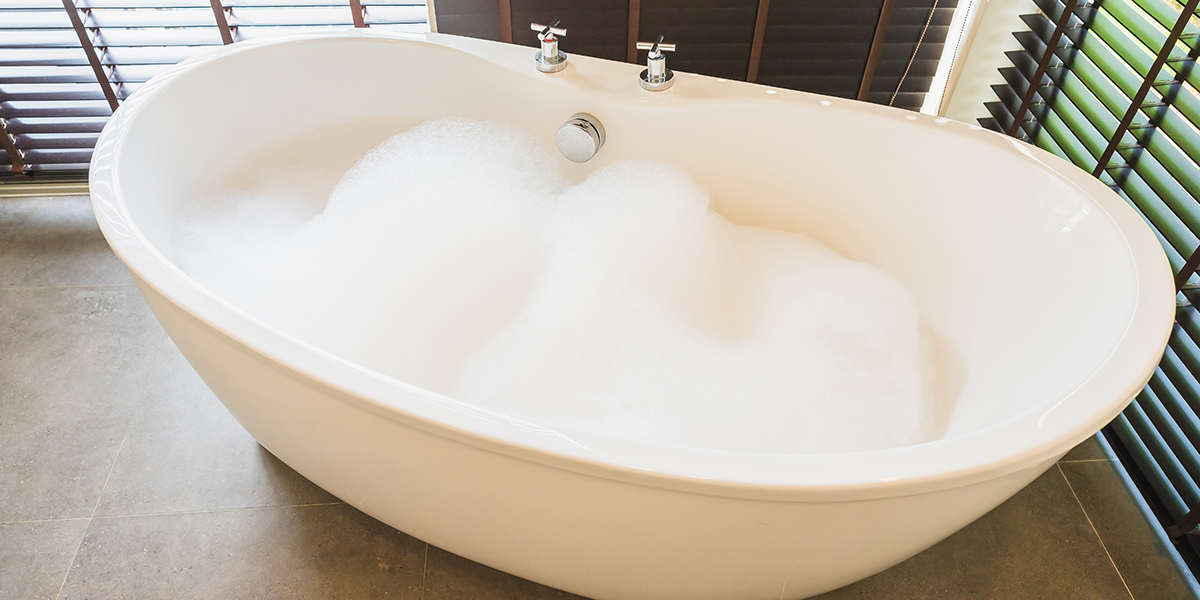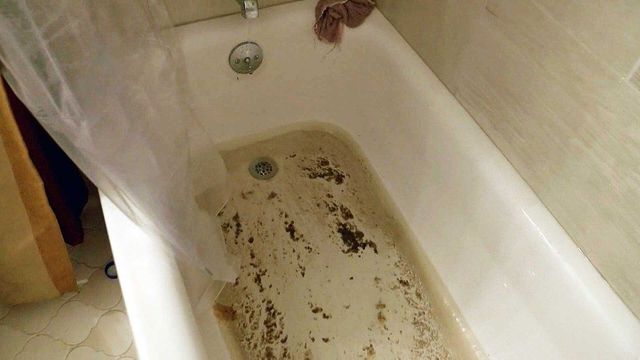Were you trying to find guidance on Why sewage is coming up through your bathtub?

Sewage back-up in the tub can be a stressful and unsanitary issue for any house owner. Not just is it bothersome, yet it likewise postures severe health and wellness threats and suggests underlying problems with the plumbing system. Comprehending why sewage is turning up through the bath tub is important for taking suitable activity to resolve the issue effectively.
Introduction to the Issue
Understanding the Trouble
When sewage draws back up right into the tub, it's a clear indication of an issue with the drainage system. The wastewater that needs to be streaming far from your home is instead locating its back into your space, which can bring about substantial damages and carcinogen.
Potential Causes
Numerous factors can contribute to sewer back-up in the bath tub. From blockages in the sewage system line to problems with the plumbing infrastructure, determining the origin is essential for locating a remedy.
Typical Factors for Sewer Back-up
Obstructions in the Drain Line
Among one of the most usual sources of sewer backup is an obstruction in the sewer line. This can take place due to the build-up of particles, oil, or international items in the pipes, avoiding appropriate flow and causing sewer to back up right into your bath tub.
Tree Origin Invasion
Tree origins seeking dampness and nutrients can penetrate sewer lines via small cracks or joints. Gradually, these roots can grow and increase, triggering substantial damages to the pipes and leading to sewage back-up concerns.
Aging Framework
Older homes may have dated plumbing systems that are extra susceptible to rust, fractures, and degeneration. As pipelines age, they become much more vulnerable to leakages and obstructions, boosting the possibility of sewer back-up incidents.
Heavy Rainfall or Flooding
Throughout durations of heavy rainfall or flooding, the drain system may come to be overwhelmed with excess water, causing backups and overflows. This can cause sewage backing up right into tubs and other fixtures inside the home.
Health And Wellness Threats Related To Sewage Backup
Contamination of Water System
Sewage backup can infect the supply of water in your home, presenting a significant wellness danger to you and your family. Direct exposure to contaminated water can bring about gastrointestinal concerns, skin infections, and various other illnesses.
Spread of Disease
Sewer consists of dangerous bacteria, infections, and parasites that can trigger a range of illness, including hepatitis, cholera, and gastroenteritis. Coming into contact with sewage or contaminated surface areas puts you in jeopardy of infection.
Mold Development
Wetness from sewage backup can produce ideal conditions for mold growth in your house. Mold and mildew spores can intensify respiratory problems and trigger allergies in sensitive people, making timely clean-up vital.
Indicators of Sewage Backup
Foul Odors
Unpleasant odors emanating from drains or fixtures, particularly in the restroom, may suggest sewage backup issues. These smells are frequently solid and relentless, signaling a trouble that needs prompt attention.
Slow Draining Fixtures
Bathtubs, sinks, and commodes that drain pipes gradually or otherwise at all could be experiencing sewer backup. If several components are influenced all at once, it's likely that the issue originates from a typical factor, such as the major sewer line.
Gurgling Sounds
Strange gurgling or gurgling sounds coming from drains pipes when water is running somewhere else in your house are a sign of air caught in the plumbing system. This air accumulation can arise from sewage back-up and ought to be examined without delay.
Immediate Actions to Take
Turning Off Water
In the event of sewage back-up, it's vital to turn off the water system to prevent further contamination and damages. Find the main water shutoff valve in your home and shut it off till the problem can be fixed.
Contacting a Professional Plumber
Taking care of sewer backup is not a do it yourself work. Contact a certified plumber with experience in handling sewage-related problems to evaluate the scenario and perform necessary repair work or cleanings.
Staying Clear Of Contact with Infected Water
Up until the sewage backup is settled, prevent contact with contaminated water to stop the spread of bacteria and virus. Use safety gear if you need to be in the affected area and clean your hands thoroughly afterward.
Safety nets
Normal Upkeep of Sewer Lines
Set up normal inspections and upkeep of your drain lines to identify and deal with possible problems prior to they rise right into major issues. This can consist of cleaning out debris, inspecting for tree origin invasion, and fixing any type of damaged pipes.
Setting Up Bayou Valves
Take into consideration mounting backwater valves in your plumbing system to stop sewage from receding right into your home throughout durations of heavy rainfall or flooding. These valves instantly close when water draws back up, shielding your building from contamination.
Correct Disposal of Home Waste
Stay clear of flushing anything apart from toilet tissue and human waste down the toilet to avoid blockages and clogs in the sewage system line. Dispose of grease, oil, and other household chemicals appropriately to minimize the danger of plumbing problems.
Tidying up After Sewage Backup
Disinfection Procedures
Extensively sanitize and sterilize influenced areas after sewage back-up to eliminate damaging germs and avoid mold and mildew growth. Usage proper cleaning items and protective equipment to guarantee safe and reliable cleanup.
Repair of Influenced Areas
Fix any kind of damages to floor covering, walls, or components triggered by sewer back-up. Depending upon the level of the damage, you may require to replace carpets, drywall, or other materials to recover your home to its pre-loss condition.
Why Is Water Backing Up in My Bathtub When I Flush My Toilet?
What to do about a sewer line clog
First, don’t bother with plunging. No amount of plunging will dislodge the clog in a sewer line. The clog is too far away. Plungers are for clogs in the toilet itself, not the sewer line. Plus, the most likely causes of a sewer clog are:
Tree roots Flushed toys or feminine products Grease buildup Those items don’t move easily. And in the case of tree roots, the roots need to be cut out of the pipe and the pipe will need to be repaired.
You’ll need a closet auger. A closet auger is a type of plumber’s snake with a protective cover to keep from scratching the delicate porcelain toilet. If the clog is further down, you may need to remove the toilet or use one of your cleanouts to get to the clog.
We also recommend doing a video inspection of the drain to ensure that the cause of the clog has been completely removed. Otherwise, you could have the same problem again in a few days or weeks.
https://mspplumbingheatingair.com/blog/why-is-water-backing-up-in-my-bathtub-when-i-flush-my-toilet

As a passionate person who reads about What to Do if Sewage Starts Coming Up Through Your Bathtub, I assumed sharing that segment was sensible. Do you know somebody who is in to the subject? Be sure promote it. Bless you for being here. Please come visit our blog back soon.
Further Details